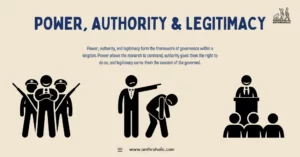AI Answer Evaluation Platform Live Now. Try Free Answer Evaluation Now
Forensic Psychology
Forensic psychology stands at the intersection of psychology and the law, serving as a crucial link between the human mind and legal outcomes. From a socio-cultural anthropological perspective, forensic psychology provides an essential lens to examine and understand human behavior within its socio-cultural contexts and legal implications [1].

What is Forensic Psychology?
Forensic psychology is a specialized field that combines the study of psychology and the law. Practitioners apply psychological concepts, theories, and methods to the legal system, encompassing both criminal and civil matters [2]. Key aspects of forensic psychology include:
- Psychological assessment: Forensic psychologists conduct evaluations of individuals involved in legal proceedings to determine their psychological state.
- Expert testimony: These professionals can provide expert insight into court cases regarding mental health, behavioral patterns, and other psychological aspects.
- Research: Forensic psychologists conduct research to understand legal issues from a psychological perspective, contributing to the development of laws and policies [3].
Socio-Cultural Context in Forensic Psychology
Socio-cultural anthropology’s focus on cultural diversity and social patterns provides a comprehensive framework for understanding human behavior in legal contexts [4]. The influence of socio-cultural factors on forensic psychology can be seen in:
Culture and Crime
Culture shapes the perception and definitions of crime and criminality. Different societies may have distinct norms and values influencing what is considered deviant or criminal behavior [5].
Social Factors
The influence of social factors, such as socioeconomic status, education, and familial relations, on an individual’s propensity towards certain behaviors can have significant implications for forensic psychology [6].
Legal Interpretation and Perception
Cultural and social elements can significantly influence legal interpretations, judgments, and the public perception of crime and punishment.
The Role of Forensic Psychologists in the Legal System
Forensic psychologists play critical roles in the legal system, including:
- Criminal profiling: Based on crime scene details, forensic psychologists can provide insights into the probable characteristics of the offender [7].
- Assessment of defendants: This includes evaluations of competency to stand trial, insanity defenses, and risk assessments [8].
- Child custody cases: Forensic psychologists can offer evaluations and recommendations in family law proceedings.
| Role of Forensic Psychologist | Brief Description |
|---|---|
| Criminal Profiling | Profiling offenders based on crime scene details |
| Assessment of Defendants | Evaluations of competency, insanity defenses, and risk assessments |
| Child Custody Cases | Evaluations and recommendations in family law proceedings |
Challenges in Forensic Psychology
From an anthropological perspective, certain challenges exist in the application of forensic psychology:
- Cultural bias: It is crucial to avoid stereotyping or bias when applying cultural knowledge in legal contexts.
- Cross-cultural competency: Forensic psychologists should be culturally competent to understand and respect cultural diversity in their work.
- Ethical dilemmas: Balancing legal responsibilities and psychological ethics can be challenging [9].
Methodological Approaches in Forensic Psychology
From a socio-cultural anthropological viewpoint, the methodological approaches employed in forensic psychology significantly affect the understanding and analysis of human behavior. Some of these approaches include:
Ethnography
Ethnographic research in forensic psychology can provide in-depth insights into the nuances of crime, victimization, and legal processes within specific cultural groups. It involves extensive fieldwork, where the researcher observes and participates in the community’s everyday life [10].
Cross-Cultural Studies
Cross-cultural studies can help examine legal and psychological concepts across different cultural contexts, ensuring that the understanding of crime, victimhood, and justice is not ethnocentric [11].
Comparative Studies
Comparative studies allow forensic psychologists to compare and contrast legal systems, crime rates, and criminal behavior across different societies. This approach can aid in understanding the effects of social, economic, and cultural factors on crime [12].
Impact of Forensic Psychology on Legal Policies
Forensic psychology significantly influences legal policies and reforms. Through its understanding of human behavior and societal factors, it informs policy-making in areas such as:
- Criminal justice: Policies concerning sentencing, rehabilitation, and crime prevention.
- Family law: Policies related to child custody, divorce, and domestic abuse.
- Mental health law: Policies regarding the treatment of individuals with mental disorders within the legal system [13].
Future Directions in Forensic Psychology
Forensic psychology continues to evolve and expand, and future directions could involve:
- Expanding cultural competence: Training in cultural competence should be prioritized to ensure sensitivity and accuracy in handling diverse cases.
- Increasing collaboration: Encouraging interdisciplinary collaboration can lead to more comprehensive research and better practice.
- Advocacy: Forensic psychologists can use their expertise to advocate for reforms in law and policy, contributing to a more just and equitable legal system [14].
Conclusion
Forensic psychology, examined through the lens of socio-cultural anthropology, provides critical insights into the complexities of human behavior within legal contexts. Its importance lies in its ability to integrate psychological knowledge, socio-cultural understanding, and legal acumen to inform fair and effective legal processes.
References
[1] American Psychological Association. (2017). Forensic Psychology.
[2] Heilbrun, K., DeMatteo, D., & Goldstein, N. E. S. (2021). APA Handbook of Psychology and Juvenile Justice. American Psychological Association.
[3] Otto, R. K., & Heilbrun, K. (2002). The practice of forensic psychology: A look toward the future in light of the past. American Psychologist, 57(1), 5-18.
[4] Bodenhorn, B., & vom Bruck, G. (2018). Anthropology and crime. Oxford Bibliographies in Anthropology.
[5] Erikson, K. T. (2017). Wayward puritans: a study in the sociology of deviance. Routledge.
[6] Farrington, D. P. (2018). Age and Crime. In The Oxford Handbook of Developmental and Life-Course Criminology.
[7] Canter, D. (2020). Criminal Shadows: Inside the Mind of the Serial Killer. HarperCollins.
[8] Melton, G., Petrila, J., Poythress, N., & Slobogin, C. (2007). Psychological Evaluations for the Courts: A Handbook for Mental Health Professionals and Lawyers. Guilford Press.
[9] Ethical principles of psychologists and code of conduct (2002, Amended June 1, 2010, and January 1, 2017). American Psychologist, 57, 1060-1073.
[10] Geertz, C. (2017). The interpretation of cultures. Basic books.
[11] Ember, C. R., & Ember, M. (2019). Cross-Cultural Research Methods. Rowman & Littlefield.
[12] Matsumoto, D. R., & Juang, L. (2016). Culture and Psychology. Cengage Learning.
[13] Roberts, A. R., & Springer, D. W. (2017). Social Work in Juvenile and Criminal Justice Systems. Charles C Thomas Publisher.
[14] Weiner, I. B., & Otto, R. K. (2013). The Handbook of Forensic Psychology. John Wiley & Sons.




